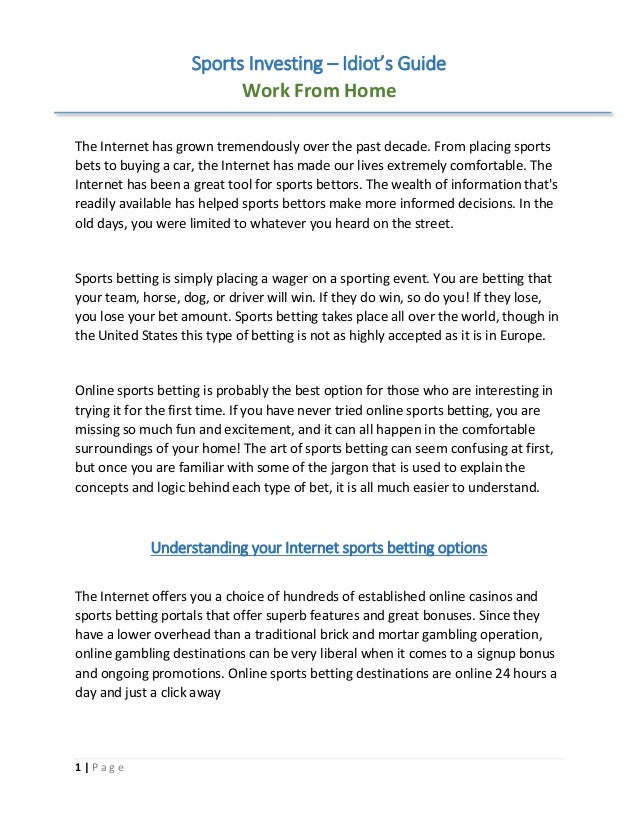How To Make Sports Betting Model
- How To Create A Model For Sports Betting
- How To Play Sports Betting
- How To Make A Sports Betting Model
Step 1: Choose your language
There are lots of programming languages to choose from. For our data modelling workshops we work in R and Python, as they’re both relatively easy to learn and designed for working with data.

Finding quality data is crucial to being able to create a successful model. We have lots of historical Exchange data that we’re happy to share, and there are lots of other sources of sports or racing specific data available online, depending on what you’re looking for. Sports Betting Model is a betting system, that helps you to find a positive expected value (value bet) in games that other bettors may not. This system will help you to estimate the probability for all outcomes in a certain game and then making unbiased betting selections, which are the key for success.

If you’re new to these languages, here are some resources that will help get you set up.
Language 1: R
How To Create A Model For Sports Betting
- Download and install R – get the language set up on your computer
- Download and install RStudio – you’ll need a program to develop in, and this one is custom-designed to work with R
- Take a look at the some of the existing R libraries you can use if you want to connect to our API, including abettor and our Data Scientists’ R repo.
Language 2: Python
- Download and install Anaconda Distribution – this will install Python and a heap of data science packages along with it
Step 2: Find a data source
Finding quality data is crucial to being able to create a successful model. We have lots of historical Exchange data that we’re happy to share, and there are lots of other sources of sports or racing specific data available online, depending on what you’re looking for.

For our workshops we use historical NBA odds data from the Exchange (which you can download directly from here), along with NBA game data from a variety of sources including:
How To Play Sports Betting
Step 3: Learn to program
It’s daunting at first but there are lots of resources out there to help get you started. These are some of our favourites if you want to learn to use R or Python for data modelling:
- Dataquest – free coding resource for learning both Python and R for data science
- Datacamp – another popular free resource to learn both R and Python for data science
- Codeacademy – free online programming courses with community engagement
Step 4: Learn how to model data
How To Make A Sports Betting Model
We’ve put together some articles to give you an introduction to some of the different approaches you can take to modelling data:
- This Introduction to Tennis Modelling gives a good overview of ranking-based models, regression-based models, and point-based models
- How we used ELO and machine learning as different approaches to modelling the recent World Cup
- We also have resources on our GitHub repo, where our Data Scientists have shared modelling tutorials using AFL and soccer data, along with a R repo for connecting with our API
Step 5: Get your hands dirty
The best way to learn is by doing. Make sure you have a solid foundation knowledge to work from, then get excited, get your hands dirty and see what you can create! Here are a final few thoughts to help you decide where to from here:
- Make sure you’ve got your betting basics and wagering fundamentals knowledge solid
- Learn about the importance of ratings and prices and get inspired by the models created by our Data Scientists
- Take a look at our Automated Betting Station and consider how you could use our API in building and automating your model
- Read about how successful some of our customers have been in their modelling journeys
Related articles
Automated Betting Station: Build Your Betfair Bot

Did you want to create a Betfair bot: an automated betting robot that bets in your sleep? Betfair is here ...
The Banker
‘Quantitative data is information about quantities; that is, information that can be measured and written down with numbers.’ – ...